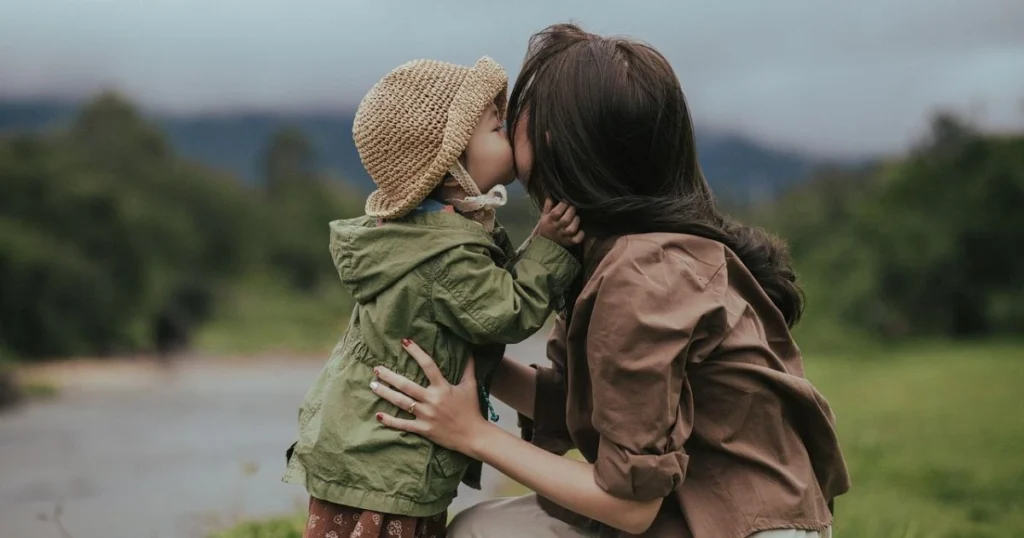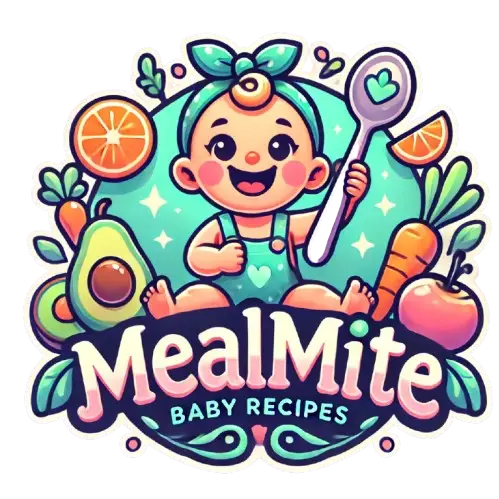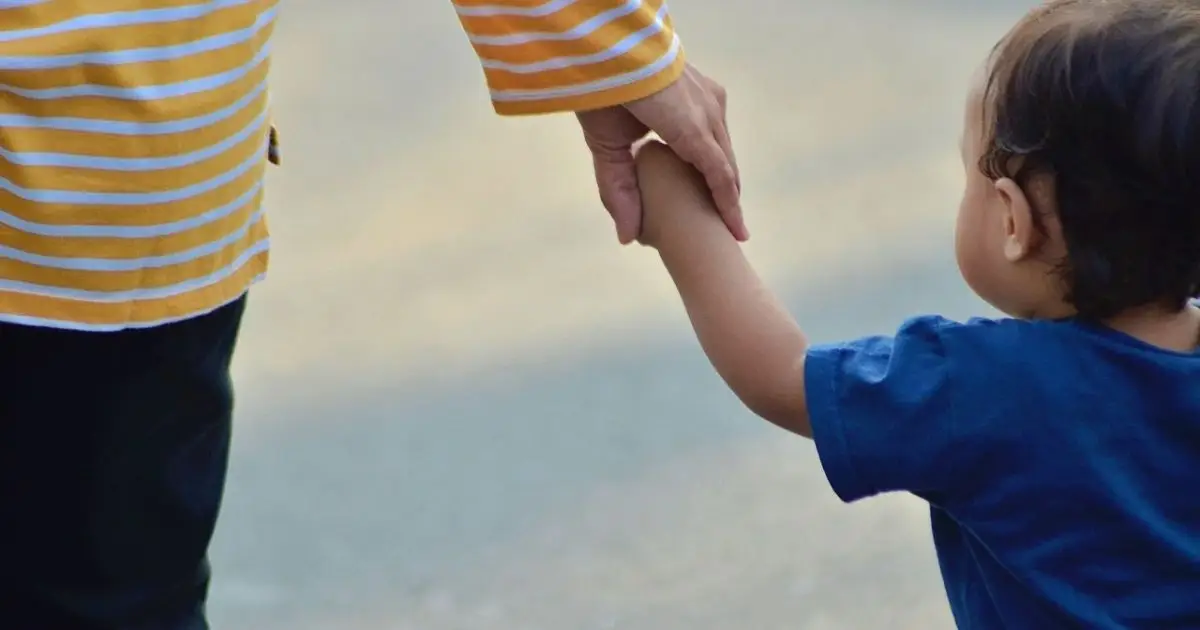Table of Contents

When Do Babies Start Saying Mama? The first words a baby says are a big deal in their language growth. “Mama” is one of the most awaited words. But when do babies start saying this special word?
Babies usually start saying their first words, like “mama,” between 10 and 14 months. But, how fast they learn to talk can vary a lot. Before their first words, babies talk with gestures, faces, and sounds like “ma” and “ba” around 6 months.
Even though a baby can say “mama” as early as 6 months, they understand it around 10 months. To count as a true word, a baby must say it correctly in different situations at least three times by their first birthday.
Key Takeaways
- Babies typically start saying their first words, including “mama,” between 10 and 14 months of age.
- Language development can vary widely, with some babies acquiring speech skills earlier or later than the typical range.
- Babies begin communicating through gestures, facial expressions, and babbling around 6 months before saying their first words.
- A baby can technically say “mama” as early as 6 months during babbling, but they won’t truly understand the meaning until around 10 months or later.
- For a word to be considered a true first word, a baby needs to consistently say the same word in the right context at least three times by the time they are a year old.
Understanding Baby’s First Words Development
When Do Babies Start Saying Mama? Watching an infant’s speech development is truly fascinating. It’s a journey filled with milestones that show their growth. This article will look at the early stages of speech, key milestones in the first year, and how brain development helps with communication.
The Stages of Early Speech Development
Speech development starts around 2-3 months with cooing and babbling. By 6 months, babies start to babble with different sounds. Around 9 months, they understand simple words and can follow simple commands. Saying their first words is a big milestone that usually happens in 12 months.
Key Language Milestones in the First Year
- 2-3 months: Cooing and babbling
- 6 months: Consistent babbling
- 9 months: Understanding simple words
- 12 months: Saying first words
The Role of Brain Development in Speech
Brain development is key for a baby’s ability to talk. In the first year, the brain builds connections fast. This lets babies link sounds with meanings through practice and interaction with caregivers. This early work is the start of the language explosion that happens later.

“By the time babies are around 1 month old, they may recognize voices. Around 2 months, babies may start cooing and producing simple sounds.”
The early stages of speech show how amazing and adaptable the human brain is. As parents and caregivers, knowing these milestones helps us create a supportive environment. This environment encourages language growth and communication skills in our children’s early years.
When Do Babies Start Saying Mama?
The moment a baby says their first words is a big deal. “Mama” is a favorite among parents. But when do babies start saying this sweet word?
Studies show most babies start saying “mama” and “dada” around 9 to 10 months. Some might say “mama” as early as 8.5 months. Others might not say it until 14 months. It’s okay if it takes a bit longer.
Babies who talk early might say “mama” by 16 to 22 months. But before 10 months, their babbling doesn’t mean anything. It’s just sounds.
Babies might say “dada” first because it’s easier to make the “d” sound. Saying “mama” first doesn’t mean they love one parent more. It just means they find it easier to make those sounds.
Every baby is different, and they develop language at their own pace. Some might not babble at all but start saying real words at 1 year old. If you’re worried about your baby’s speech, talk to a doctor.

“Repetition is crucial for babies to learn to talk. To encourage babies to say ‘mama’, activities like mirror play, making ‘mm’ sound during mealtime, playing Peek-a-Boo saying ‘mama’, practicing Hide and Seek with ‘mama’ prompts, and creating a photo book can be effective.”
Parents can help their baby’s speech by creating a language-rich environment and engaging in fun activities. This will help them reach this exciting milestone when they’re ready.
The Difference Between Babbling and Real Words
Babies start with babbling and then move to saying their first words. Knowing the difference helps track their language growth.
Recognizing Intentional Communication
Babbling starts around 6 months with sounds like “mamma” or “bababa.” These sounds help babies practice speaking, but they’re not yet real words.
Real words come when babies use a sound to mean something specific. This shows they understand words and their meanings, and it’s when they start to communicate on purpose.
The Progression from Babbling to Words
The move from babbling to words is different for every baby. They usually say their first words between 12 and 14 months. By 15 months, they might know one to three words.
This change depends on brain growth and how much they hear language.
| Developmental Stage | Age Range | Milestone |
|---|---|---|
| Babbling | 6 months | Repetitive sounds like “mamama” or “bababa” |
| First Words | 12-14 months | Consistent use of a sound to refer to a person, object, or idea |
| Vocabulary Growth | 15 months | 1-3 words learned |
It’s key to know the difference between babbling and intentional communication. This helps track your child’s language development. By noticing these milestones, you can support their speech and language skills as they grow.
Why Babies Might Say “Dada” First
Babies often say “dada” before “mama” for a few key reasons. The “d” sound is easier for them to make than the “m” sound. This is because the “d” sound uses the tongue tip, while “m” requires closing the lips.
Parents and caregivers also use “dada” more when the father is not around. This makes the baby more familiar with the word. It’s not about preferring the father; it’s just easier to say.
Studies show that in over 900 babies aged 8 to 16 months, “dada” was the first word they said. “Mama” usually comes after “dada.” This shows babies are learning to name things in their lives.
While “dada” is common, some babies say other words first. This doesn’t mean they prefer one parent over the other. The order of the first words can vary.
“Babies often say ‘dada’ before ‘mama’ because the ‘d’ sound is easier to make than the ‘m’ sound. Additionally, parents tend to use the word ‘dada’ more when the father isn’t around, reinforcing the baby’s exposure to that word.” – Stephanie Cohen, Speech-Language Pathologist
As babies grow, they’ll get better at making the “m” sound. They’ll start saying “mama” more, along with other early words. It’s key to create a language-rich environment to help their speech grow.
The Science Behind Baby’s First Words
Language development is closely tied to the infant brain. Newborns start forming neural pathways for speech and language in their first year. This rapid brain development is key for understanding and saying their first words.
Neural Pathways and Language Development
Research shows the brain’s amazing ability to learn language quickly. Repeating sounds like “mama” and “dada” helps strengthen these connections. This makes it easier for babies to say these words.
The Role of Parent-Child Interaction
Talking, singing, and reading with a baby is vital for language growth. When caregivers respond to a baby’s attempts to communicate, it boosts their language skills. This encourages them to learn more.
A study in the Proceedings of the National Academy of Sciences found that “mama” and “dada” are easy for babies to learn. This is because they require simple mouth movements. This makes them common first words.
What a baby says first can depend on exposure and how easy it is to say. While “mama” and “dada” are often said equally, “dada” might come first. This is because saying “d” is simpler than saying “m”.
Knowing the science behind a baby’s first words helps parents create a language-rich environment. This supports their child’s language development during this important time.
How Babies Learn to Associate Words with Meaning
Babies start to connect words with things they see or do. This is called word association. It’s a big step in their language comprehension and cognitive development.
Usually, babies understand words before they can say them. This happens around 6 to 9 months old. They learn by hearing the same words in the same situations.
- Pointing to objects while naming them helps babies make these vital connections.
- Using gestures alongside words can further enhance a baby’s understanding of language.
- By the time they reach 12 months, most babies can understand several words and may even respond to simple commands.
Using the same words for the same things is important. It helps babies learn and remember words. This makes them better at understanding and saying their first words.
| Baby Speech Milestones | Age Range |
|---|---|
| Cooing, turning towards voices, recognizing sounds | 3 months |
| Babbling with different sounds like “ba-ba” or “da-da” | 6 months |
| Comprehending basic words like “no” and “bye-bye” | 9 months |
| Saying simple words like “mama” and “da-da,” understanding basic requests | 12-18 months |
| Forming short phrases of 2-4 words | 2 years |
| Vocabulary expanding rapidly, understanding abstract language | 3 years |
Babies learn to connect words with meanings early on. This is the start of their language journey. It helps them with communication skills later on.
Creating a Language-Rich Environment
Starting your baby’s language journey begins at home. Talk to them often, describe what you do, and read books together. This way, you fill their world with words, boosting their language stimulation and speech encouragement.
Daily Activities to Encourage Speech
Every day offers chances to help your baby with their language. Talk about what you’re doing, name things, and sing songs. These parenting techniques link sounds to meanings and grow their vocabulary.
- Describe what you’re doing while dressing, bathing, or feeding your baby.
- Point out colors, shapes, and other characteristics of household items.
- Engage your child in interactive games like peek-a-boo or pat-a-cake.
- Read aloud from picture books, emphasizing keywords and their pronunciations.
The Importance of Responsive Parenting
Responsive parenting is vital for your baby’s language growth. When you react to their sounds, you boost their language stimulation and speech encouragement. Eye contact and simple language in conversations also help.
“The more you talk to your baby, the more they will learn. Responsive parenting is key to building a strong foundation for language development.”
By making your home a place of language and using responsive parenting, you guide your child towards clear communication and self-confidence.
Common Speech Development Patterns
As infants grow, they follow a predictable timeline of speech and language development. Knowing these patterns helps parents and caregivers support their child’s communication skills.
When Do Babies Start Saying Mama? In the early months, babies start making sounds around 2-3 months. They begin babbling around 6 months, making sounds like “baa” or “maaa.” By 6-10 months, they start using both simple and complex sounds.
By the end of their first year, babies say their first words. Common words include “Mama,” “Dada,” and “Dog.” Around 18 months, they often have a “language explosion,” learning over 50 words quickly.
While speech development varies, delays can signal future issues. These might include language or speech delays, or learning disabilities. Early intervention is key to supporting a child’s communication skills.
Understanding these patterns helps create a language-rich environment. This encourages and supports a child’s communication skills as they grow.
“Babbling serves as a crucial stepping stone to actual words and is a key marker of speech and language development, positively impacting language acquisition when parents/caregivers respond to the child’s attempts at communication.”
Signs Your Baby Is Ready to Start Talking
As your baby grows, you might be excited for their first words. Every child develops at their own pace. But, some signs show your baby is ready to start talking.
Pre-speech Milestones
Before saying their first word, your baby will hit some key milestones. They’ll make steady eye contact, respond to sounds, and babble back and forth. Around 6 months, they usually start babbling, a big step towards their first words.
Body Language and Gestures
Your baby’s body language and gestures can show they’re ready to talk. Look for them pointing, waving, or shaking their head. These actions show they understand language and want to communicate. They might also use sounds like “baba” or “dada” to express their needs.
Remember, every child is different, and there’s a wide range of normal development. If you’re worried about your baby’s speech, talk to your pediatrician. With patience and support, your baby will soon start talking and sharing their thoughts.
FAQ
When Do Babies Start Saying Mama?
Babies usually start saying their first words between 10 to 14 months. “Mama” is often one of the first words they say. But, it’s not always the very first word. Before saying words, babies communicate through gestures and facial expressions.
What are the stages of early speech development?
Early speech development starts with cooing and babbling around 2-3 months. By 6 months, babies start babbling. By 9 months, they understand simple words. And by 12 months, they say their first words.
Brain development is key in speech. Neural pathways form quickly in the first year.
When do babies typically start saying “mama”?
Babies start saying “mama” between 8 to 12 months. But, it might not mean anything until 10-14 months. The “m” sound is easy for babies to make, often in early babbling.
However, “dada” is often said first because it’s easier to say.
What is the difference between babbling and real words?
Babbling starts around 6 months with sounds like “mamama” or “bababa.” Real words come when babies use a sound for a specific person or object. Sounds like “m,” “b,” and “d” are mastered first.
Intentional communication uses gestures, facial expressions, and sounds to show needs or wants.
Why do babies often say “dada” first?
Babies say “dada” first because it’s easier to say than “mama.” The “d” sound is made with the tongue tip. “M” requires lip closure.
Also, caregivers often say “dada” when he’s not there. This makes the word more familiar. It’s not about preference but ease and exposure.
How does brain development affect language development?
Language development is closely tied to brain development. Neural pathways for speech and language form quickly in the first year. Talking, singing, and reading with your child stimulates these pathways.
The brain’s ability to change and adapt helps in quick language learning during this time.
How do babies learn to associate words with meaning?
Babies learn word meanings through repetition and context. They start understanding words before they can say them, often by 6-9 months. Pointing to objects while naming them helps them connect words to things.
Using gestures with words also helps them understand better.
What can parents do to create a language-rich environment?
Create a language-rich environment by talking to your baby all day. Describe what you’re doing and read books together. Naming objects, singing songs, and playing simple games encourage speech.
Responsive parenting, where caregivers react positively to the baby’s attempts at communication, boosts confidence and encourages more attempts.
What are the common speech development patterns?
Common speech patterns include cooing at 2-3 months, babbling at 6 months, and first words around 12 months. By 18 months, most babies have a vocabulary of 10-20 words. Speech clarity improves gradually, with most children speaking clearly by age 4.
It’s normal for babies to understand more words than they can say.
What are the signs that your baby is ready to start talking?
Signs of readiness include making eye contact, responding to sounds, and babbling. Body language and gestures like pointing, waving, and shaking the head show that babies are ready to communicate. Babies may use specific sounds consistently to express needs or wants.
Increased attentiveness to speech and attempts to imitate sounds are positive signs.


2 thoughts on “When Do Babies Start Saying Mama? An Unforgettable Moment”